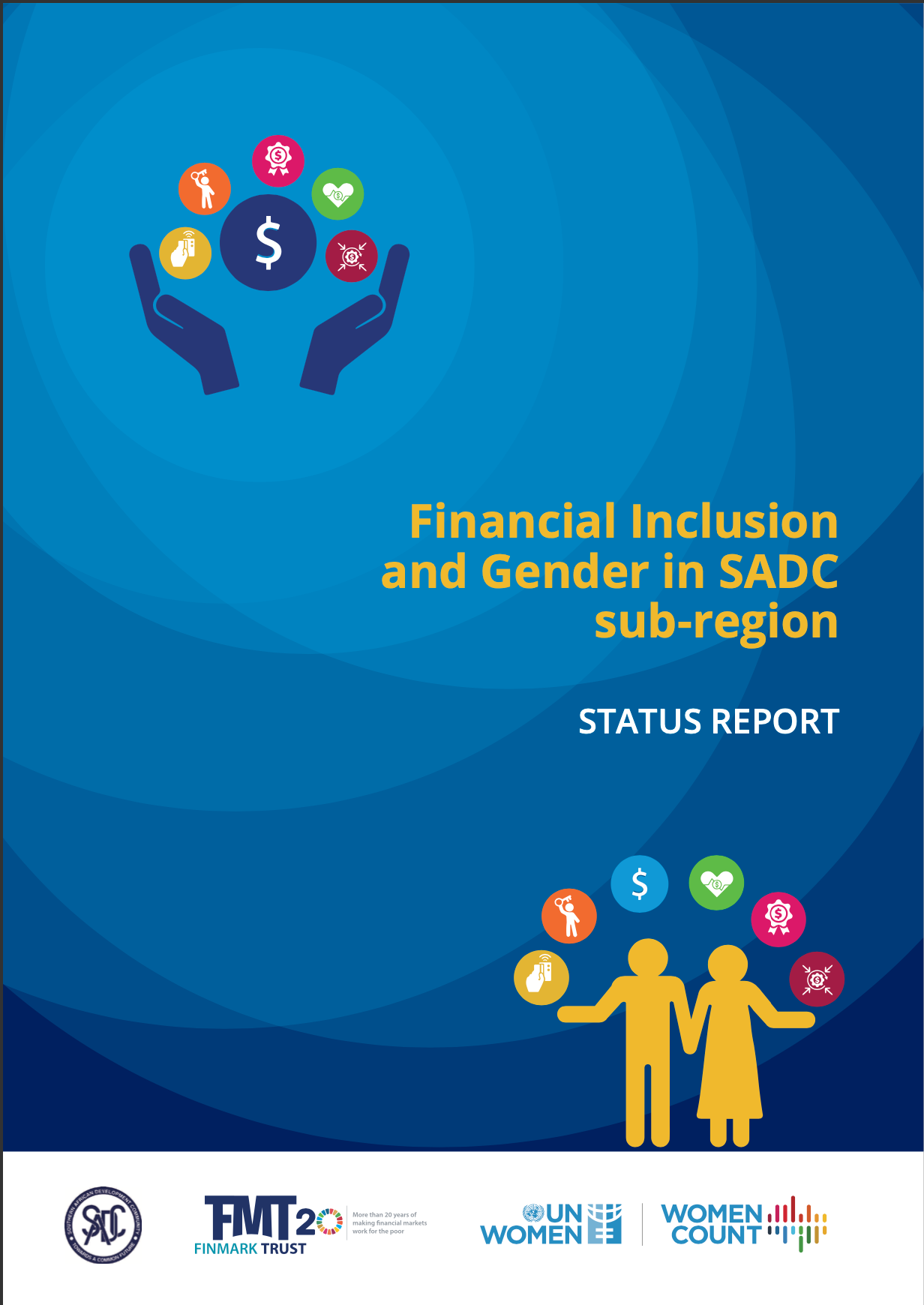
Financial inclusion and gender in the SADC region - Her Finance, Her Future Building Stronger Economies One Woman at a Time

Women’s economic empowerment, financial independence, power and agency are facilitated through financial inclusion, using financial services and managing their own incomes. Empowering women economically drives social progress and mobility as women tend to invest their money in education and health. Financial inclusion also plays a pivotal role in achieving Agenda 2030.
UN Women - Southern Africa Development Community (SADC) supported a research study in 2024 that analysed existing data from the Global Financial Access Survey, Global Findex and FinScope surveys. The study evaluated the status of key financial inclusion indicators and did a comparative analysis of women and men. Its geographic coverage included all SADC member states; Angola, Botswana, Comoros, Democratic Republic of Congo, Eswatini, Lesotho, Madagascar, Malawi, Mauritius, Mozambique, Namibia, Seychelles, South Africa, United Republic of Tanzania, Zambia and Zimbabwe. It provides the most up to date and available statistics in this field and highlights the differences between women and men. Key thematic areas covered in the report are access to and use of financial services, as well as some elements of social protection.
The study found that women are still significantly more financially excluded than men in most SADC member states, although the gaps between women and men have in some instances narrowed since 2016, when a similar study was done. More than half of the SADC member states still have significant gender gaps on all of the key indicators. The report makes several key recommendations on how data gaps can be overcome, and the provision of financial services can be adjusted to better accommodate the needs of women.